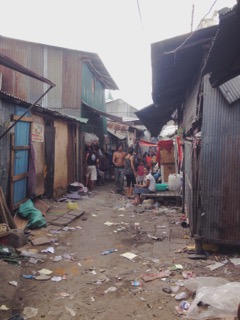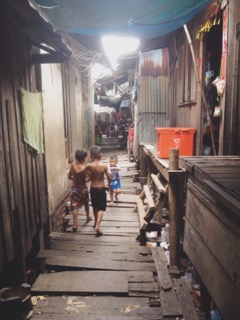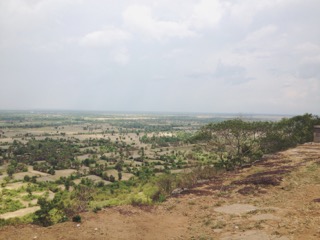 Helsingin Sanomat recently published a well-informed article on the shady business side of volunteering programs. It was yet another exposé in the canon of volunteering tourism stories. Concepts such as #thirdworldselfie and “volunteering holiday” illuminate the focus of current criticism; volunteering has become a holiday style, alongside surfing, scuba diving and beach resorts, with the exception of this holiday potentially being detrimental to the healthy development of a nation’s social, political and economical infrastructures.
Helsingin Sanomat recently published a well-informed article on the shady business side of volunteering programs. It was yet another exposé in the canon of volunteering tourism stories. Concepts such as #thirdworldselfie and “volunteering holiday” illuminate the focus of current criticism; volunteering has become a holiday style, alongside surfing, scuba diving and beach resorts, with the exception of this holiday potentially being detrimental to the healthy development of a nation’s social, political and economical infrastructures.
In a similar vein, the western world is critiqued for the infamous “white savior syndrome/ complex”. This is the accurately named mindset of westerners rushing to “fix” developing countries with abundant enthusiasm and sentiment but little understanding of neither the complexity of large-scale global issues nor the professionalism to accomplish anything useful. In the language of commerce, you could say that the “savior” complex is a demand, which the tourism supplies with ample opportunities.
What started as raised awareness (showcased by flops such as KONY 2012) at the potential harm a well intended program or campaign could have on a country, has now expanded into a more comprehensive critical look at the motives behind foreign charity organizations working in developing countries.
One admiringly credible voice of criticism on western do-gooders belongs to the novelist Teju Cole, who in his brilliant article “The White-Savior Industrial Complex” says;
“If we are going to interfere in the lives of others, a little due diligence is a minimum requirement”. This he says in reference to the western sentimentally justified “right” to “help” without an understanding of the complex, multilayered nature of global development and social justice issues. The critics are asking, “who are the ones getting on planes to save the world, and why? Who are the ones inviting them and again why?”
The criticism is justified and necessary, because an organization claiming to be non-profit in nature, should function as such, but also because an opportunity for profit is sure to draw in the frauds and scam artists like moths to a flame. It’s justified on the grounds that an organization claiming to help eradicate some development issue, should genuinely attempt to do so.
But the criticism itself is slightly problematic. Mainly because for many, it effortlessly becomes a fitting mask for passivity, a “valid” reason to shrug shoulders and say
“Hey, the world’s a shitty place and there’s nothing I can do about it”.
Criticism, in essence, should lead to a quest of sorts; first to identity and discard that which is useless or harmful and then to find a better way. Criticism that doesn’t catalyze change is always pointless.
So, while I greatly respect the critical voices in the public domain and agree with much of what is being said, I’ve also become aware of the paradoxical nature of this issue.
One element of it is that a call for “due diligence”, as Cole puts it, essentially demands that one be well informed. That demand can be fulfilled with rigorous and extensive reading. But that doesn’t compete with the level of familiarity that a personal experience offers. The problem is that in the current atmosphere of general negativity and criticism, it is easy to find a lifetime’s worth of reasons not to step outside the borders of your home country, especially to do any good. The do-gooders have proven to be inadequate, plagued with an overconfident but hugely uniformed attitude about themselves and the world, not to forget that the whole terrain of NGOs seems to have become incurably corrupt.
As with any other issue, the truth is not painted in black and white. In bundling the whole sphere of charity work up in a lump labeled “Western Attempts At a Polished Halo”, we run the risk of throwing the baby out with the bathwater. We forget that there are multitudes of good, operational organizations worldwide that are tirelessly working to have a long-term positive effect on their respective communities. There are good organizations that need helping hands and funding, organizations that can teach a person a thing or two about the intertwining of social, economical and political issues in a given country.
The paradox then, is that the best way to stop being a pompous western know-it-all, who does more harm then good, is to go face someone else’s truth. It’s guaranteed to smack you in the face with a wet towel of your own naïve stupidity in no time. Good NGOs can offer one that necessary experience.
I say this, because that’s what volunteering has done for me. I’ve been the prototype of an idealistic white woman in my twenties who’s wanted to “make a difference” and I’ve acted on the desire to help. I’ve pretty much made every mistake in the book from accidentally supported an orchestrated begging industry by giving money to a kid, to imposed my own views about equality on people who found it absurd.
“You’re crazy, a single woman just can’t live alone in India, I could never do that!”. I’ve begun projects I wasn’t qualified to do and couldn’t finish. Yet, at the end of the day, I still speak for joining an organization, even for a short-term stint. Why?
Because, I’ve never learned more about the world and myself than on my volunteering trips. Experience has forced me to grow and be humbled.

Working for an NGO, even for a short while has given me a taste of how interconnected many social issues; real-life orientation I couldn’t have received from reading even the most comprehensive works on global issues. It’s by seeing organizations in action that you learn what works and what doesn’t.
I’ve had the chance of discussing the common pitfalls in the field of charity work. One acquaintance in India, Mr. John, told me of his involvement in a project aimed at decreasing the huge number of intestinal diseases from soiled drinking water, by building every house in the village an adjoining outhouse. A year after the completion of the outhouses the team went back for a check up, to see that the villagers had found a use more necessary than bowel health for the newly build outhouses. They were using them to dry the hay for livestock.
I’ve seen scam NGOs in action. One Brazilian lady I met at a cigarette stand in Kathmandu asked me whether I knew of any affordable hostels nearby. It turned out she had paid $3000 for a three month volunteering program at an “orphanage” which had turned out to be an ingenious scam, profiting from both the volunteers and moderately affluent Nepalese families who paid to have their children dressed up in ragged clothes and learn English from foreigners for a few hours each day.
I’ve learned that the key element of a healthy organization is a focus on sustainability and a desire for western presence to eventually become redundant. I’ve learned to listen more and speak less and begun to see what the real, underlying needs are and what part I can play in it, if any.
Lastly, it’s through my volunteering trips that I’ve have come to see where the criticism stems from and how necessary it is. I’ve become more critical of NGOs myself, but on the flipside I’ve also seen the importance of them for individual people and families in destitute situations. On my most recent trip to South-east Asia, getting acquainted with a small organization working in human trafficking prevention and aftercare, I saw the positive, lasting impact a program was having for individual women, their families and their communities by extension. A woman’s decision to enroll in vocational training program had a direct, visible effect on her children, from their physical appearance to the way they interacted with their peers.
So while being wary of the many, and I mean MANY, problems surrounding volunteering programs and charity organizations, I encourage anyone who’s considering it, to go, but to do so with thoughtfulness and thorough research. Support organizations that have sustainable programs, organizations that are locally led and operated and then go expecting to humbled.
Don’t let the criticism hold you back from familiarizing yourself with its relevance or validity.



